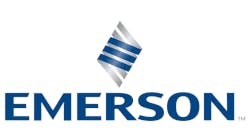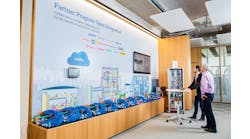Process safety would be better if it had strong regulations as German beers do
Jim Montague is the Executive Editor at Control and Control Design magazines. Jim has spent the last 13 years as an editor and brings a wealth of automation and controls knowledge to the position. For the past eight years, Jim worked at Reed Business Information as News Editor for Control Engineering magazine. Jim has a BA in English from Carleton College in Northfield, Minnesota, and lives in Skokie, Illinois.After covering German technology remotely for years, I finally got the chance to visit in person recently. The country has countless excellent attributes, of course, but I quickly noticed one in particular because it validated what I'd long assumed was just hype.
I remembered that beer ads in the U.S. used to occasionally refer to Germany's Reinheitsgebot law requiring breweries to use only malt, hops, yeast and water. However, I thought then that this rule was too simple and quaint to be real, and that it just marketing baloney.
Well, when I recently got my hands on a couple of light and dark liters at an unassuming, semi-rural German motel, I learned that its far superior taste and smoothness—not to mention its less intoxicating and less headache-inducing properties—were all due to this almost 500-year-old tax rule that still regulates what ingredients can be used in Germany's beer and what can't go into it. Also, this wasn't a three-star Michelin restaurant or a gourmet micro-brewery, just the buffet at a local lodging. Was this place especially favored in some way? Nope. These stellar light and dark suds were mainstream throughout Germany.
Do you know who the Top 50 Automation Companies are? Find out.
Naturally, I thought back on my U.S. beer-drinking background, and recalled some excellent brews, but they were exceptions that were few and far between. I also remember myself and others being on the lookout for a really good beer, and sometimes recommending finds to each other. This is because my native land seems to primarily have its traditional watery beers, and more recently its numerous over-hopped, typically bitter "craft" beers. Two extremes that are both mostly undrinkable.
Several times over the years, I've even observed two or three beers that started out delicious, but when they got popular, their taste quickly dropped off and became unpalatable. I suspect their producers decided to cash in on their popularity, and mixed in rice or some other cheap ingredient to maximize short-term profits. No law against it here.
In Germany, no quest is needed because the Reinheitsgebot ensures that great beer is everywhere. Lacking a similar rule, U.S. beer drinkers get shortchanged and underserved, and like me, most don't even realize it until we visit another continent.
So, are there other situations and industries that follow a similar pattern? Dozens. You can probably think of more than I can. For example, we used to have guaranteed pensions and boring, regulated banks. Now, we have "choice," toxic loans and 401k retirements funds that lose half their value with each downturn.
The starkest parallel for me is process safety. Control has repeatedly covered tragedies like Deepwater Horizon and Texas City, which just keep happening in an unbroken parade because the U.S. still has either watery, non-prescriptive, enforcement-after-the-fact, wrist-slapping safety regulations, or we have temporarily outraged, over-the-top, legislation-by-litigation when accidents happen. Again, two inefficient extremes, and both taste bad.
This presentation by celebrated safety system expert Dr. William M. Goble, principal partner, exida, clearly describes how functional safety devices can be selected, justified and documented. Watch the presentation >>
Back in Germany, Europe and elsewhere, process safety laws are far more prescriptive, which results in better-designed and safer facilities and operations. And, stiffer criminal penalties provide better reminders and deterrents for potential violators.
Please don't get me wrong. Many U.S. manufacturers strive to do a great job on process safety. I just think it would be better and healthier for everyone if the bad actors could be required to do the same, or at least get closer to it. Common-sense regulations are the most efficient option in many applications, and more of us should help develop them, instead of run from them. I know we have to be free to be the rugged, Wild West individualists we tell ourselves we are, but it would be good if we could also show more of the awareness, courage and will needed to brew some better beer and other socially useful solutions.
Download our beginner's guide to differential pressure level transmitters






